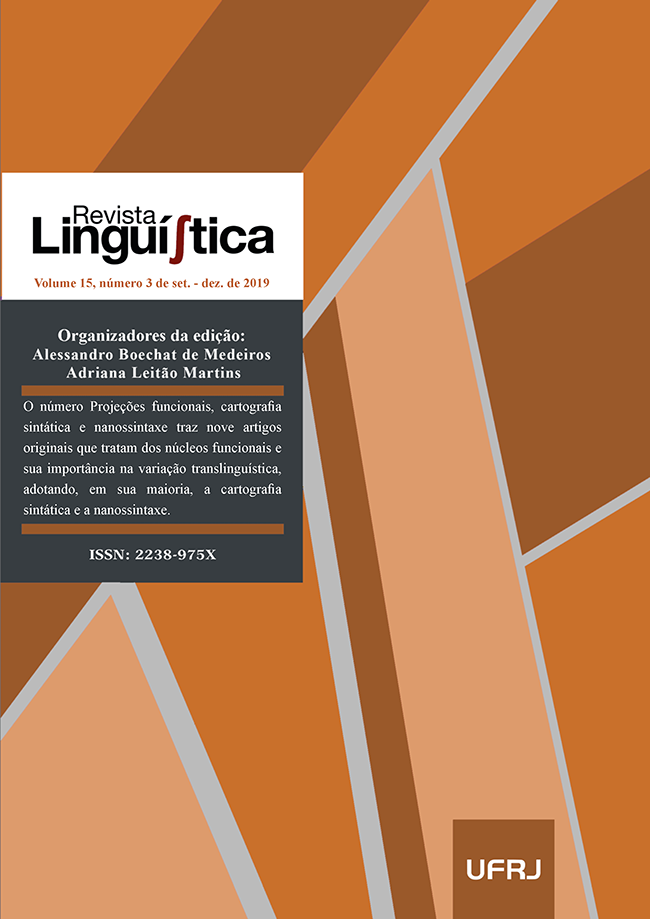GOAL prepositions in Brazilian Portuguese: a comparison between ‘para’ and ‘até’
DOI:
https://doi.org/10.31513/linguistica.2019.v15n3a27505Keywords:
Spatial Prepositions. Path structure. Nanosyntax.Abstract
In this work, we investigate within the theoretical framework of Nanosyntax (Starke, 2009; Pantcheva, 2011) prepositions that express GOAL in Brazilian Portuguese (BrP), focusing on distinctions between ‘para’ and ‘até’. We argue that although these prepositions when combined with a motion event indicate the path endpoint (p(1)), there are subtle semantic differences in their uses that point out to the lexicalization of distinct syntactic structures. Thus, ‘para’ and ‘até’ do not compete for the spell-out of the same segment of the spatial functional hierarchy, this fact justifies the behavior of these prepositions regarding some tests, such as the entailment of reaching the GOAL, the possibility of composition with temporal measure phrases, the imperfective paradox and the ambiguity with the adverb ‘almost’. Our analysis demonstrates that ‘para’ is an approximative preposition which lexicalizes the [scale, goal] heads and ‘até’ is a terminative preposition which lexicalizes [bound, goal]. Finally, we also discuss a special structure in which the preposition ‘em’ seems to convey the GOAL of a movement and we argue against the ambiguity between a locative and a path reading for this preposition. Following Gehrke (2008), we suggest that ‘em’ lexicalizes only the place head, thus claiming that the GOAL interpretation is just a case of fake syncretism in BrP.
---
DOI: http://dx.doi.org/10.31513/linguistica.2019.v15n3a27505
Downloads
Published
Issue
Section
License
Authors who publish in the Revista Linguí∫tica agree with the following terms:
The authors maintain their rights, ceding to the journal the right to first publication of the article, simultaneously submitted to a Creative Commons license permitting the sharing with third-parties of published content as long as it mentions the author and its first publication in the Revista Linguí∫tica.
Authors may enter into additional agreements for the non-exclusive distribution of their published work (for example, posting in online institutional or non-profit repositories, or book chapters) so long as they acknowledge its initial publication in the Revista Linguí∫tica.

The journal Revista Linguí∫tica is published by the Post-Graduate program in Linguistics of UFRJ and employs a Creative Commons - Attribution-NonCommercial 4.0 International (CC-BY-NC).









